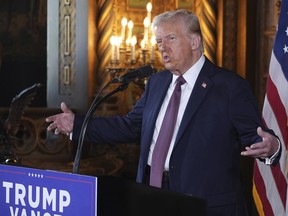The Backdrop: Trump’s Tariff Threats and Their Impact
A Growing Tensions Between Canada and the United States
The relationship between Canada and the United States has always been a cornerstone of North American economic cooperation. However, tensions have been simmering for some time, particularly over trade policies and geopolitical considerations.
The Threat of tariffs
In late November, Donald Trump announced his intention to impose 25% tariffs on Canadian goods imported into the United States. This move was met with significant backlash from both Canada and the U.S., as it raised concerns about job losses and economic disruption. The conflict escalated when Trump later threatened to use "economic force" to make Canada a state, an unprecedented step in U.S. foreign policy.
The Economic Impact
The implementation of tariffs has had far-reaching consequences for both countries. For instance:
- Energy Dependence: Canada is the largest supplier of oil to the U.S., and the potential tariffs could significantly affect global energy markets.
- Nuclear Fuels: Canada’s uranium production is critical to the U.S. nuclear power plants, creating a direct link between the two nations’ economic and strategic interests.
- Agriculture: Potash, a key ingredient in fertilizer, is another major export from Canada that could be impacted by trade restrictions.
The Political Landscape
Prime Minister Trudeau’s Response
In response to Trump’s threats, Prime Minister Justin Trudeau made it clear that his government would not accept such actions. During a dinner meeting at Mar-a-Lago with Trump in late November, the two leaders discussed potential trade disputes and even mentioned the possibility of Canada becoming a U.S. state.
Opposition and Public Sentiment
The threat has been met with both concern and criticism from within the Canadian government. Prime Minister Trudeau has hinted that his party lacks sufficient support to continue governing effectively in the face of an election, should the conflict escalate further.
The Conservation Efforts
In addition to trade tensions, Canada’s conservation efforts have faced significant challenges due to climate change. A recent report highlighted that Canada is currently the largest external supplier of oil to the U.S., its uranium is the biggest foreign source of fuel for U.S. nuclear power plants, and its potash is a huge source of fertilizer for American farms.
The U.S.’s Response
Export Taxes as Potential Solutions
In response to Trump’s tariffs, officials in Ottawa have been examining the use of export taxes on items such as uranium, oil, and potash as potential responses in case a trade war erupts. Bloomberg News reported last month that these measures could help offset the impact of tariffs while maintaining Canada’s economic independence.
The Canadian Dollar’s Decline
Trump’s threat to impose tariffs has also had an immediate impact on the Canadian dollar. Since November 25, the loonie has weakened slightly against the greenback, with a loonie exchange rate now at $1.4344 per US dollar as of 2:54 p.m. in New York.
The Odds of a Policy Change
Trudeau’s Resignation
In recent developments, Prime Minister Justin Trudeau announced his resignation on Monday, citing insufficient support from within his Liberal Party to lead the party into an election this year. This has sent shockwaves through Ottawa and beyond, as questions now arise about who will replace him as leader of the party.
The Role of Foreign Minister Melanie Joly
Foreign Minister Melanie Joly has emerged as a key figure in the ongoing political landscape, with social media posts indicating that Canada ‘will never back down in the face of threats.’ Her leadership is expected to play a critical role in navigating the complex terrain of U.S. trade policy.
The Potential for Policy Change
Given the current political climate, it seems increasingly likely that Canada may be forced into making significant changes to its foreign and trade policies. This could include, but not necessarily be limited to, adjustments to trade agreements or measures to protect domestic industries in the face of increased U.S. economic pressure.
The Broader Implications
Geopolitical Tensions
The ongoing tensions between Canada and the United States highlight the complexities of modern geopolitics and the delicate balance of power that exists between North America’s two largest economies.
The Need for Dialogue
As both nations face increasing challenges, including climate change, economic competition, and trade disputes, the need for dialogue and cooperation becomes more urgent. Finding a solution that satisfies both sides will require open communication and a willingness to compromise.
Conclusion
The threat of Trump making Canada a state is nothing short of unprecedented in U.S. foreign policy. The situation is evolving rapidly, with no clear path forward yet. As the two nations continue to navigate this complex terrain, the outcome could have far-reaching implications for both economies and political landscapes.




